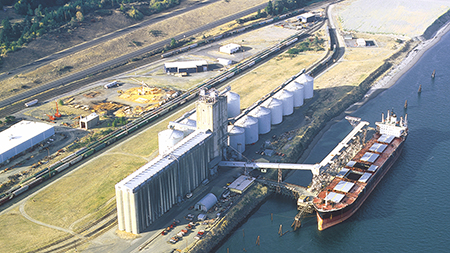After years of discussion and negotiation, the Trump administration’s highest-profile trade deal went into effect on July 1. The United States-Mexico-Canada Agreement, or USMCA, takes the place of the outdated North American Free Trade Agreement, commonly known as NAFTA.
While NAFTA had its flaws, it did dramatically open up our ability to sell agricultural goods to our neighbors. For example, U.S. corn exports to Mexico increased more than 600 percent between 1990 and 2016, according to the U.S. International Trade Commission. Canada and Mexico now stand as our nation’s two largest trading partners across all industries.
Missouri exported at least $1.2 billion worth of agricultural goods to Mexico and Canada in 2018. This is more than a quarter of the $4 billion of our state’s total ag exports, according to the U.S. Department of Agriculture. USMCA provides more access to North American dairy, turkey, egg and chicken markets. This should help Missouri farmers see these numbers continue to grow.
USDA also estimates that agricultural trade supports over 32,400 jobs in Missouri. At a time when unemployment is high and our economy is in a bad spot, we need to use every possible advantage to create more jobs. Expanding agricultural trade provides a great opportunity to do so.
One place the new agreement could directly help Missouri is increased biotechnology investment. Most observers agree that USMCA is the most modern trade agreement in the world. One reason for that is it addresses agricultural biotechnology, including gene editing tools. This is the first time a trade agreement has specifically addressed this issue.
Missouri is the world leader in agricultural biotechnology. Specifically, the St. Louis region is home to the most plant science Ph.D.s of any city on Earth. Established companies and institutions like Bayer, the Donald Danforth Plant Science Center and Washington University combine with hundreds of small, innovative companies and startups to create a rich ecosystem of progress. The St. Louis Economic Development Partnership and the 39 North biotechnology innovation district are recruiting more companies to the area on a regular basis. USMCA’s expanded science-based rules on biotechnology will only help grow this powerhouse.
USMCA also sets standards and rules for what it calls “digital trade“ – a category that did not even exist when NAFTA was signed in the early nineties. USMCA also updates rules relating to intellectual property. This will help our trade laws work together with the new information economy and drive American innovation.
Of course, trade agreements are only valuable if the participants abide by their rules. We must insist on strong enforcement of USMCA’s provisions to ensure we gain the benefits it could bring. The Trump administration has continually said USMCA’s enforcement rules are strong and that it will watch closely for violations. Farmers need to keep watch as well and hold our leaders to these promises.
Trade is the lifeblood of the agricultural economy. American farmers are so productive that we must find new customers to buy the bounty we create. With USMCA, we have shown the world that the United States is open for business. Our nation is ready to strike more of these high-quality deals with new trading partners and continue growing our economy for the future.


